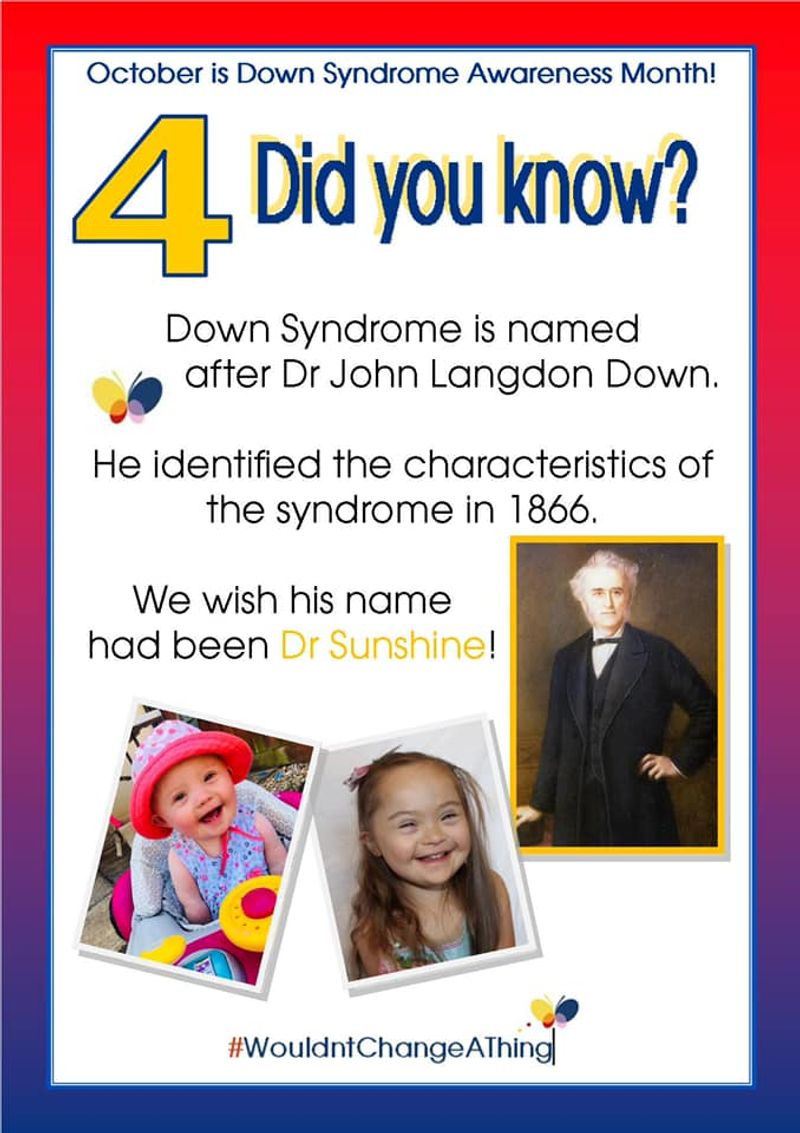
Day 4: Did You Know? The History Behind The Magic.
Down Syndrome is named after Dr John Langdon Down. He identified the characteristics of the syndrome in 1866. We wish his name had been Dr Sunshine.
The history behind the magic. A long article, but informative and shows just how far we have come in terms of language (thankfully!), but also that John Langdon Down had some great ideas to support and integrate, rather than segregate and hide away, people with Down Syndrome and that they would benefit from early intervention type support - hurrah! I hope to post much more about the benefits of 'early intervention' in future posts.
He also appears to have been an active supporter of Women’s Rights. What a forward thinking chap he was.
Some key sections from the linked article:
In the Royal Earlswood Asylum, and later in Normansfield, he set up training systems based on physical exercise, sensory stimulation, and role-playing in such social activities as shopping. this involved training and encouraging a team of carers who would now be classified as play therapists, occupational therapists, speech therapists and specialist teachers. None of these groups had yet emerged as distinct professions He recognised that social exclusion and the loneliness of limited social contact were major problems...
He hoped that many could later be integrated in useful activity at home... (OK this might sound patronising now, but in the context of the time, this is the right idea!) In the conditions of the time, the social attitudes, the transport problems, and the overall lack of services his ideas were practical and innovatory. In particular, although his own Normansfield centre was orientated towards the upper classed, he laid great emphasis on the importance of the provision of services for lower income families...
Aside from his contribution to medicine he was in advance of his time in being prepared to accept the advancement of women in medicine, the law and the church. His Harley Street consulting rooms were used for fundraising for the Suffragette movement.
For a brief history of how society has treated people with Learning Disabilities in this country and how it feels to be an adult with a Learning Disability now, I urge you to read ‘Made Possible' a collection of fantastic essays written by people with a Learning Disability and supported and edited by the wonderful Saba Salman. I am sure I will refer to this book time and time again. It is essential reading.
